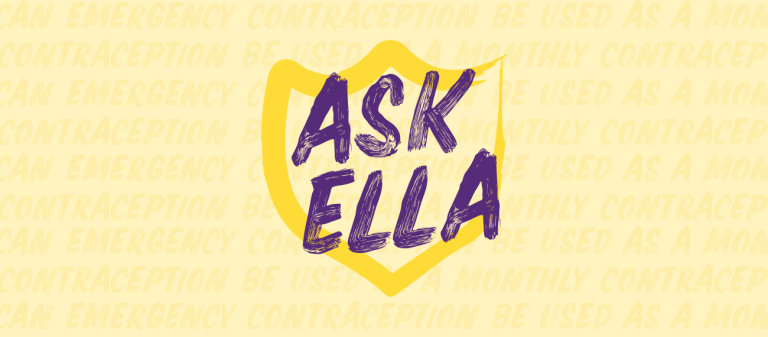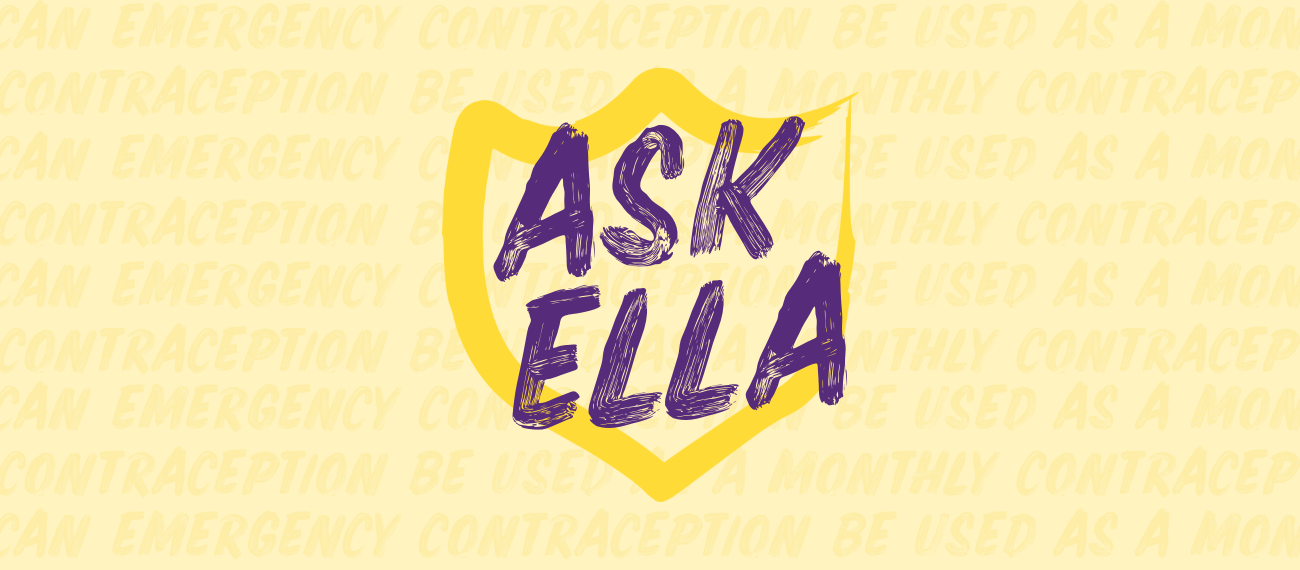Can emergency contraception be used as a monthly contraceptive pill?
How much do you know about emergency hormonal contraception, otherwise known as the morning after pill? If your answer is not much, you’re not alone. We conducted a survey of over 1000 respondents in 2019 and found that just 46% had learned about emergency contraception in school. When asked how much they learned about it at school, 43% said emergency contraception was only briefly mentioned.
You can’t know what no one has ever told you, so it’s understandable that there are many myths and misconceptions about emergency contraception. It’s important to us that we do what we can to spread awareness and accurate, medically backed information around emergency contraception – and sexual health in general – so that you can make informed choices about your reproductive health.
Despite the word ‘emergency’ in the title, some people may think that you can use emergency hormonal contraception in place of regular contraception. We can see why some people might want to do this: if you’re not having regular sex, perhaps you’re not using regular hormonal contraception. Maybe you don’t like – or forget to use – condoms. We’re not here to judge, but we are here to inform you so that you have all the facts you need.
Can you take the morning after pill as a regular contraceptive?
“Emergency hormonal contraception is for those ‘emergency’ situations when contraception has failed or unprotected sex has occurred,” says Deborah Evans**, a pharmacist with over 30 years of experience. “It works for that episode of unprotected sex and does not provide ongoing contraceptive cover throughout the month. If you require more reliable contraception than your current method, speak to your pharmacist or other healthcare provider who can discuss different options with you.”
Emergency contraception can be very effective at helping to prevent one incident of unplanned pregnancy, but this effectiveness cannot be guaranteed if you take the morning after pill multiple times in the same cycle. To understand why, let’s have an overview of how the morning after pill works.
How does the morning after pill work?
The morning after pill can help prevent pregnancy after contraceptive failure (i.e. the condom breaks or you forget your pill), or if you get caught up in the moment and don’t use contraception. It does this by delaying ovulation, so it holds back the release of the egg. As sperm can live inside the body for up to five days, taking the morning after pill can help prevent the egg from being released whilst there is any sperm still in the body.
The morning after pill only works by delaying ovulation. It cannot interrupt an existing pregnancy, it does not cause an abortion and it won’t affect implanation. Basically, if you have already ovulated, the morning after pill won’t be effective.
Regular hormonal contraceptive pills work by preventing (rather than just delaying) ovulation. Some contraceptive pills like Hana® (a progestogen-only pill available to buy over the pharmacy counter) are taken every day without a break between packs, whilst other contraceptive pills may have a seven day ‘break’ where you stop taking them or take placebo pills to have a monthly bleed. You take contraceptive pills every day (or according to pack instructions) whether or not you are having sex every day, so when you do have sex ovulation has been prevented and the sperm will have nothing to fertilise.
With the morning after pill, you take it after you’ve had unprotected sex or experienced contraceptive failure. This means that there is a window in between having sex and taking the pill in which you might get pregnant if you ovulate. With regular contraception, this window doesn’t exist as you are taking something every day to prevent ovulation.
Whilst emergency hormonal contraception can effectively prevent pregnancy in an emergency situation, it does not protect you from pregnancy from repeated incidents of unprotected sex and it is not designed to be used as in place of regular contraception.
When do I ovulate?
Ovulation can be really hard to predict, because it varies from month to month and from person to person. Whilst the average menstrual cycle is 28 days long (with ovulation happening around day 14), anything from 21 up to 40 days is considered a ‘normal’ menstrual cycle. The timing of ovulation can be affected by things like stress, changes in sleeping patterns, diet, contraception and so on.
You may not ovulate on the same day every month, so you may want to consider emergency contraception if you have unprotected sex and experience contraceptive failure – even if you don’t believe it happened around the time of ovulation. Depending on the length of the cycle, some people may even ovulate whilst still on their period.
No method of contraception is 100% effective, but ellaOne®, an emergency hormonal contraceptive pill containing ulipristal acetate, is 2.5x more effective than levonorgestrel when taken within 24 hours of unprotected sex*.
Can I take the morning after pill multiple times in the same cycle?
As we mentioned before, the morning after pill will only help protect you from pregnancy from a single incident of unprotected sex. If you have unprotected sex again, it will not be effective at preventing pregnancy. You may be able to take the morning after pill twice in the same cycle, but it’s a good idea to speak to your doctor, pharmacist or a nurse at a sexual health clinic first as taking different types of morning after pills (i.e. one containing ulipristal acetate and one containing levonorgestrel) may impact their effectiveness.
If you notice that you are repeatedly using the morning after pill, it may be a good idea to think about your contraceptive options. There are lots of choices out there and different things work for different people. Some might have to try a few different options before they find something which works for them.
If you’re interested in hormonal daily contraception, Hana® is the best selling progestogen-only contraceptive pill available over the pharmacy counter with no need for a doctor’s appointment.
*Verify at ellaone.co.uk/verify
**Deborah Evans does not endorse any products or brands.
Have you ever taken the morning after pill? What was your experience like? If you feel comfortable doing so, share your story below to help us end the stigma around emergency contraception.
ellaOne® 30mg film-coated tablet contains ulipristal acetate and is indicated for emergency contraception within 120 hours (5 days) of unprotected sexual intercourse or contraceptive failure. Always read the label.
Hana® 75µg film-coated tablets contains desogestrel and is an oral contraception for women of child bearing age to prevent pregnancy. Always read the instructions on the package leaflet carefully.




